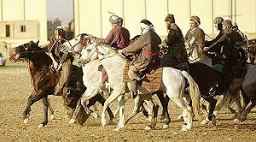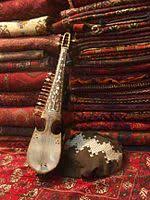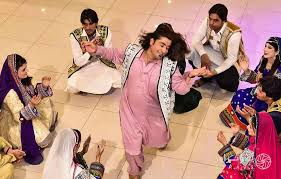Afghanistan culture

Afghanistan’s culture is rich and diverse and is a reflection of the ups and downs and ethnic diversity of this country. Some important aspects of Afghan culture are:
-
Languages: Afghanistan has several official and local languages. The official languages are Dari (Persian) and Pashto. In addition, other languages such as Uzbek, Turkmen, Balochi, Nuristani, and Pesha are also spoken in different regions.
-
Nations: Afghanistan consists of various ethnic groups including Pashtuns, Tajiks, Hazaras, Uzbeks, Turkmens and Balochs. Each of these tribes has its own language, culture and traditions.
-
Religion: Islam is the dominant religion in Afghanistan and the majority of the population of this country follow the Sunni religion. But Shias, especially the Hazaras, also have a significant population. Religion plays an important role in the social and cultural life of Afghan people.
-
Literature and Poetry: Afghanistan has a rich history in the field of literature and poetry. Great poets such as Maulana Jalaluddin Balkhi (Rumi), Sanai Ghaznavi, and Rabia Balkhi have emerged from this land. Poetry and literature still have a special place in Afghan culture.
-
Arts and crafts: The traditional arts of Afghanistan include carpet weaving, carpet weaving, pottery, metalwork and miniature painting. These arts are produced by hand using old techniques and are common in many rural and urban areas.

-
Music: Afghan music is diverse and influenced by different cultures. Traditional instruments such as rebab, dotar, tanbur, and tabla are used in Afghan folk music. Each region of the country has its own musical styles.

-
Food: Afghan cuisine includes a variety
of delicious dishes using local ingredients and traditional cooking techniques. Foods such as Qabi Pilu, Mento, Ashek, kebabs and fresh bread are among the most popular dishes in this country. -
Traditional clothes: Afghan traditional clothes include chador and burqa for women and long dresses and pants for men. These clothes are usually decorated with beautiful patterns and colors.
-
Traditions and ceremonies: Cultural traditions and ceremonies play an important role in the social life of Afghan people. Weddings, Nowruz, religious festivals and national occasions are held with great enthusiasm and provide an opportunity for families and society to gather.
Despite many challenges, Afghan culture remains alive and dynamic and plays an important role in the national and social identity of the people of this country.
Do Afghans preserve their culture abroad?
Yes, Afghans abroad are trying to preserve their culture and pass it on to future generations. These efforts include various cultural aspects:
-
Language and Literature: Many Afghans in different countries keep Dari and Pashto languages at home and among their families. They also try to introduce their children to Afghan literature and poetry.
-
Religious education: Afghans attach great importance to religious education and try to teach the principles and teachings of Islam to their children. Mosques and Islamic centers play an important role in this field.
-
Ceremonies and Celebrations: Afghans abroad celebrate cultural and religious ceremonies and celebrations such as Nowruz, Eid al-Fitr, Eid al-Adha, and national holidays with their families and communities. These celebrations provide an opportunity to maintain and strengthen social and cultural relations.
-
Foods and Cooking: Traditional Afghan cuisine is still preserved in Afghan families abroad and many popular dishes such as Qabi Pilu, Mento, Ashek and fresh bread are prepared and consumed.
-
Arts and handicrafts: Some Afghans are engaged in producing and selling handicrafts and traditional arts abroad. These activities help preserve traditional techniques and arts and pass them on to new generations.
-
Traditional clothes: On special occasions and ceremonies, Afghans wear their traditional clothes and preserve these cultural symbols.
-
Cultural associations and organizations: Many Afghan communities abroad have cultural associations and organizations that hold cultural programs and events. These associations play an important role in preserving and promoting Afghan culture in the diaspora.
-
Music and Dance: Traditional Afghan music and dance are still popular among Afghan communities abroad and are performed in ceremonies and celebrations.
These efforts demonstrate the importance of culture and identity to Afghans and help them maintain their connection to their cultural and historical roots.